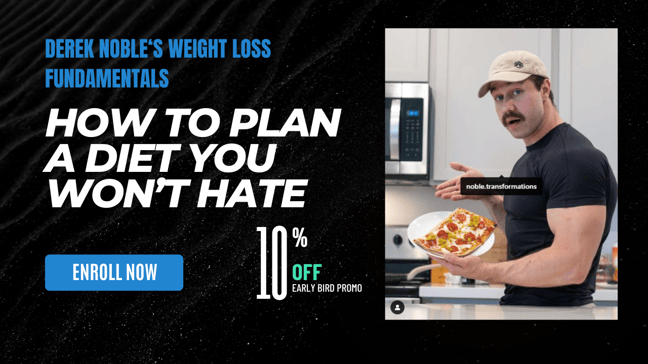Noble Nutrition Course Creation Strategy
Presented by: Jan Evets
Course Creation Methodology
Research Viable Topics
Chose a Subject
Create the outline
Make the Script and Narrative
Create the Visual Assets
Record and edit the video
Finalize in Skool (Upload Videos and Visual Assets, Organize Modules and Lessons,Set Access Levels and Pricing, Customize the Course Page)
Test the Course
Launch and Promote the Course(Create copies, ad images, Tiktok reels, etc.)
Monitor and Update the Course
Sample Visual Asset of a Course on How to Lose Weight through a Proper Diet
-If I were to create a real thumbnail or preview image, it would be much better but I'll also need Canva Pro and Midjourney(If I get the job, I'll subscribe)


How to Structure a Course in Skool
1. Introduction: Hook Your Audience
Module 1: Welcome and Course Overview
Lesson 1: Introduction to [Course Name]
Use compelling copy to highlight the benefits of the course.
Share your story or the story behind the course to create a personal connection.
Clearly state what the learner will achieve by the end of the course.
Lesson 2: How to Navigate the Course
Provide a quick guide on how to use Skool.
Reassure them that they’re in the right place and ready to succeed.
2. Foundation: Establish the Basics
Module 2: Core Concepts
Lesson 1: Understanding [Core Concept 1]
Use clear, concise language to explain foundational concepts.
Highlight why these basics are crucial for their success.
Lesson 2: The Importance of [Core Concept 2]
Use persuasive copy to reinforce the value of what they’re learning.
Include anecdotes or real-life examples to make the material relatable.
3. Deep Dive: Engage with Detailed Content
Module 3: Advanced Techniques
Lesson 1: Mastering [Advanced Topic 1]
Break down complex topics into easy-to-digest sections.
Use bullet points, lists, and visual assets to aid comprehension.
Lesson 2: Applying [Advanced Topic 2]
Provide actionable steps with clear instructions.
Include motivational language to encourage learners to apply what they’ve learned.
4. Practical Application: Encourage Hands-On Learning
Module 4: Practical Exercises and Case Studies
Lesson 1: Exercise on [Specific Skill]
Use copy that challenges and motivates learners to practice.
Offer tips and hints to guide them through the exercises.
Lesson 2: Real-Life Case Study of [Relevant Example]
Craft a narrative around the case study to keep it engaging.
Pose questions that prompt critical thinking and reflection.
5. Conclusion: Reinforce and Celebrate
Module 5: Course Wrap-Up
Lesson 1: Recap and Key Takeaways
Summarize the course content, emphasizing the most important points.
Use positive language to reinforce their progress and achievements.
Lesson 2: Next Steps and Continued Learning
Encourage learners to apply what they’ve learned in their own contexts.
Promote additional resources, other courses, or continued support.
Social Media Ecosystem
Lead Generation
Conversions
Retention
Leads buy the paid course, or ebook, or buy a product that you endorse and become a customer
Inbound Lead Generation: Our social media accounts will organically attract leads.
By creating lead magnets like worksheets and short ebooks, we can guide potential customers to our sales page.
When making ebooks, worksheets, videos, and other content, it's essential to be straightforward and provide helpful information.
From there, we should always lead them to the next stage—conversion—using direct response copywriting.
In writing ebooks, I think it's easy to repurpose a book though I think it's better to have a different angle. Combining two or three books into one is a good idea too.
And we can also add new sections based on our topic research.
Let me know what you think...
I'd love to start on Monday and be familiar with your workflow. I'm excited to bring you more leads and drive your conversion rates up through stellar content.
Thanks!
Sincerely,
Jan Evets
